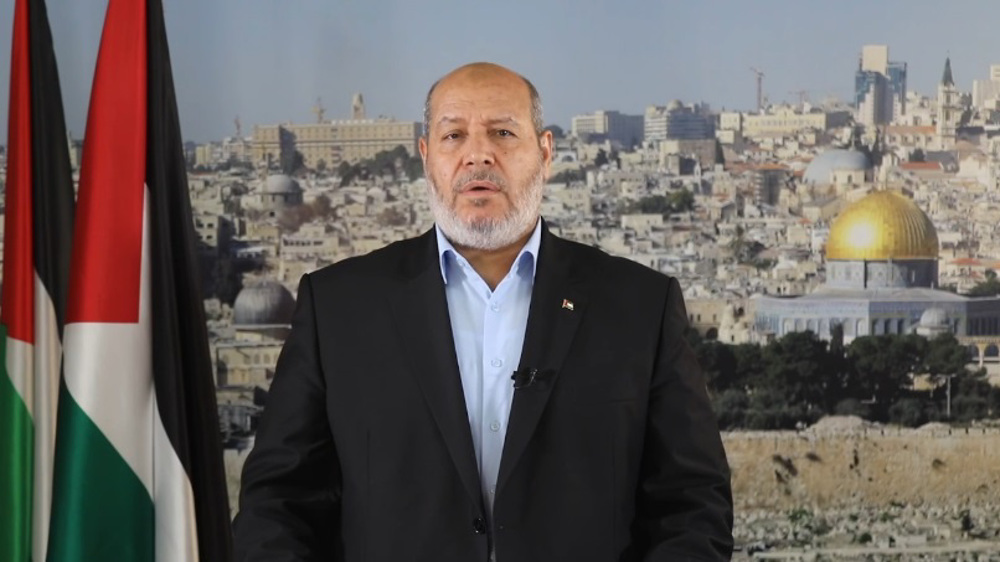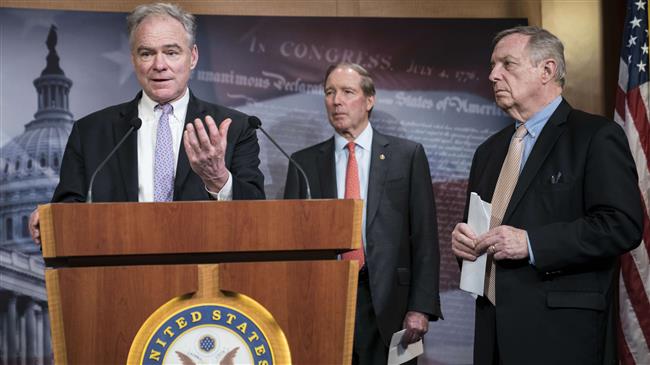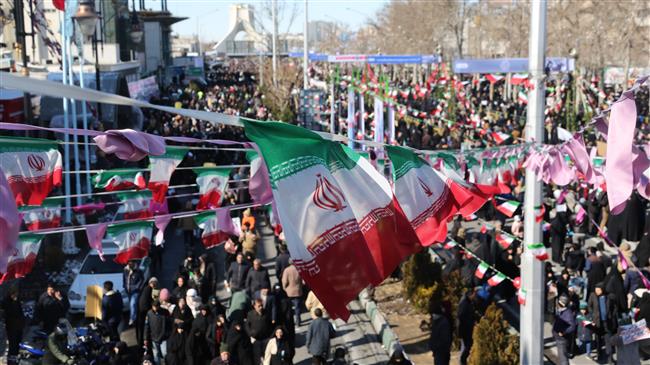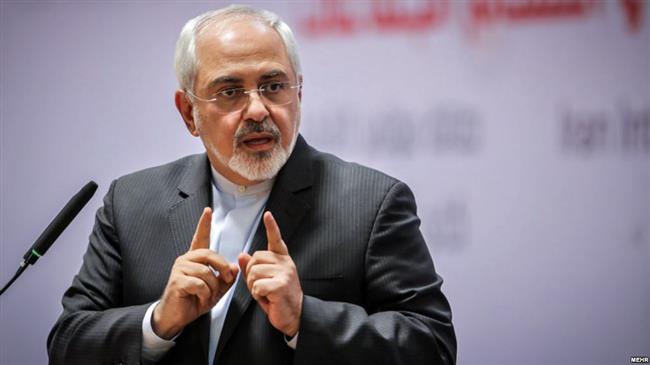Cowardly assassination of Gen Soleimani pushed Iran, US very close to war: Zarif
Foreign Minister Mohammad Javad Zarif says the United States’ “cowardly” assassination last month of senior Iranian anti-terror commander Lieutenant General Qassem Soleimani pushed Washington and Tehran “very close” to war.
Zarif made the remarks in an exclusive interview with NBC News’ Richard Engel in Munich on Friday on the sidelines of the Munich Security Conference.
“We were very close to a war because the United States initiated an act of aggression against Iran in a very, excuse the language, cowardly way,” he said.
“They couldn’t confront [General] Soleimani in the battlefield so they hit him during the dark of night through a drone attack on a car carrying him on a peace mission, which is beneath any dignified way of dealing with this,” he added.
The terrorist US forces assassinated General Soleimani, the former commander of the Quds Force of Iran’s Islamic Revolution Guards Corps (IRGC), along with Abu Mahdi al-Muhandis of Iraq’s Popular Mobilization Units (PMU) or Hashed al-Sha’abi counterterrorism fighting force, and their companions by targeting them near Baghdad International Airport on January 3.
General Soleimani has earned reputation as the Middle East’s most decisive and respected counterterrorism commander. During his lifetime, he provided indispensable contribution to fighting terrorism across the region, including by effectively assisting Iraq and Syria in defeating the Takfiri terror group of Daesh in late 2017.
He was on an official visit to the Iraqi capital when the assassination took place.
The IRGC shortly unleashed volleys of ballistic missiles at the US’s Ain al-Assad airbase in Iraq’s Anbar Province, and another American outpost in the northern Iraqi Kurdistan Region. Leader of the Islamic Revolution Ayatollah Seyyed Ali Khamenei later described the retaliatory strikes as “only a slap.”
Zarif said US President Donald Trump -- who had directly ordered the assassination -- was “misled” to believe that the United States would get away with the act of aggression and that the atrocity would work to boost the US’s security.
However, “it worked the other way around,” and Iran’s proportionate response targeted Ain al-Assad, “the [very] base, from which the operations against [General] Soleimani were carried out,” the foreign minister noted.
“We wanted to show to the United States that they cannot bully Iran…that actions against Iran will have repercussions,” Zarif said.
“It was the beginning of the end of the US in the region,” he added.
Following the assassinations, the Iraqi parliament voted overwhelmingly in favor of a bill mandating the expulsion of all US-led forces from the Arab country’s. Former caretaker prime minister Adel Abdul-Mahdi also called on Washington to provide the cooperation that was required to enable the withdrawal.
US misunderstandings can cause it ‘catastrophe’
Zarif went on to observe that the United States was suffering from “misperceptions and misinformation” about Iran.
“It is important for President Trump to listen to advisors, who have better knowledge of our region rather than novices, who know nothing about our region,” the top Iranian diplomat added, warning that the US’s misconception concerning the Islamic Republic “can cause catastrophe.”
Ukraine flight disaster
Later during the interview, Zarif regretted that Iran was being withheld the cooperation required to properly crack the black box of the Ukrainian passenger aircraft that was mistakenly downed by the IRGC five days after the US assassinations as the Islamic Republic was on the highest possible level of alert to further potential American acts of aggression.
“There are still a lot of unknowns. That’s why we want to know more than anybody else what’s in the black box…to know what actually happened,” Zarif said.
“The black box is available to all the parties to this, [including] the United States as the country that manufactured the plane,” he stated. “We will not touch the black box without the presence of all interested parties,” he added.
However, “nobody is bothering to give us [the relevant assistance] as the country which has the right to investigate,” the top diplomat stated.
With 167 passengers and nine crewmembers on board, Ukraine International Airlines flight PS752 crashed outside Tehran's Imam Khomeini International Airport on January 8, moments after takeoff.
The General Staff of the Armed Forces of the Islamic Republic announced on January 11 that the plane had flown close to a sensitive military site and been brought down due to human error "at a time of crisis caused by US adventurism."
The head of IRGC Aerospace Division Brigadier General Amir Ali Hajizadeh also explained that the air defense system had erroneously identified the aircraft as a hostile missile.
Hamas thanks Iran, Resistance Front following achievement of ceasefire in Gaza
'Capitulation': Israeli officials and media concede Gaza defeat as truce unfolds
'Gaza has won': Social media users react to ceasefire with mix of relief, joy
Iran seeks South Korea’s assistance for AI, fiber-optic projects
VIDEO | Iran's 'Eqtedar' (Power) maneuver
Israel hits HTS military target in Syria for 1st time since fall of Assad
VIDEO | Press TV's news headlines
Israel has slaughtered 13,000 students in Gaza, West Bank














 This makes it easy to access the Press TV website
This makes it easy to access the Press TV website